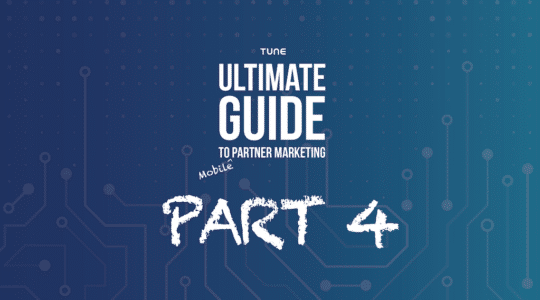
Smart marketers know that attribution is precisely at the core of what they need to do real data-driven marketing. Sometimes it seems complex and challenging, but ultimately, attribution is a very, very simple idea:
- Attribution tells you how your prospects become customers
- Attribution tells you how your customers buy more, increasing your share of wallet
- Attribution tells you how your best customers become fans
- Attribution tells you how your fans evangelize the good news about you, your company, your products, and your brand
So we are always happy to see more partners spreading the attribution news. Facebook, of course, does attribution on clicks and views of ads. And today Google announced Google Attribution, which will help marketers “measure the impact of their marketing across devices and across channels — all in one place, and at no additional cost.”
This is great, and will help marketers. For marketers who are just getting started with attribution, these tools are extremely helpful. And the same is true for marketers who just use one platform, or even primarily one platform.
There is just one challenge, of course, for ad networks that offer attribution.
Google attribution is great, as long as your customers only ever touch Google.
Facebook attribution is great, as long as your customers only ever touch Facebook.
The challenge, however, is when people are both Gmail customers and Facebook users. When they use Instagram and Google search. When they message with Messenger, but also chat with Allo. When they have a Google Home but also an Amazon Echo.
The fact is, people have complex lives.
No one company — even the massive tech conglomerates that we see today in GAFA (Google, Apple, Facebook, and Amazon) — controls all of a person’s digital activity or online identity. Only a layer that flows through everything that a marketer is doing, both digital and offline, can accurately and completely measure marketing success.
Plus, of course … it’s always nice to have independent third-party measurement to verify that what an ad network says is working … is actually working.
There’s something even more important than independent verification, however.
The story of adtech and martech could be told, from a certain perspective, as the battle between publishing/advertising platforms and brands over who owns access to customers. Google and Facebook, in particular, have built massive properties of enormous value that have attracted unprecedented numbers of customers.
Marketers, clearly, want to connect to those customers.
It’s a marriage made in heaven, seemingly. Except that publishing/advertising platforms want to facilitate the connection today, and tomorrow, and the next day, and so on and so forth for ever and ever. Each time, of course, taking a little toll for marketers to cross the bridge and reach people.
Marketers, however, want to not just reach prospects; they want to establish actual relationships with customers and, occasionally, email them. Message them. Hear from them. Directly, one-to-one at scale, unmediated, and un-“taxed” by a publishing/advertising platform.
To do so requires owning your own customer information.
Remember all the bullet points at the top of this post about what attribution actually is and what it actually does? (Go ahead, re-read them if you wish.)
Now you understand why serious marketers need to own their own attribution, own their own data, and be able to move, enrich, add to, and export their data when and where they wish.
And, ultimately, own their own customer relationships.
Read more about our thoughts on attribution, performance marketing, and mobile on the TUNE blog.
Author
Before acting as a mobile economist for TUNE, John built the VB Insight research team at VentureBeat and managed teams creating software for partners like Intel and Disney. In addition, he led technical teams, built social sites and mobile apps, and consulted on mobile, social, and IoT. In 2014, he was named to Folio's top 100 of the media industry's "most innovative entrepreneurs and market shaker-uppers." John lives in British Columbia, Canada with his family, where he coaches baseball and hockey, though not at the same time.




[…] Smart marketers know that attribution is precisely at the core of what they need to do real data-driven marketing. Sometimes it seems complex and challenging, but ultimately, attribution is a very simple idea: […]